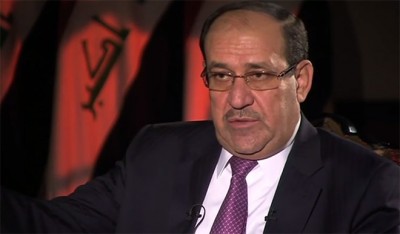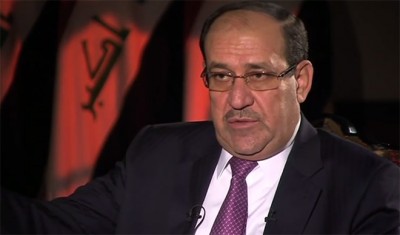 Iran’s leadership is split over whether to continue its support for Iraqi Prime Minister Nouri al-Maliki, according to senior U.S. officials involved in Baghdad’s political process.
Iran’s leadership is split over whether to continue its support for Iraqi Prime Minister Nouri al-Maliki, according to senior U.S. officials involved in Baghdad’s political process.
The Obama administration has aggressively been pressing Iraq’s political parties to quickly form a new national government to unify their country’s Shiite, Sunni and Kurdish communities in the fight against the Islamic State, a Sunni militia that’s gained control of large swathes of western Iraq in recent months.
U.S. officials privately say they believe Mr. Maliki, a Shiite, needs to stand down for a unity government to be formed in Baghdad, due to policies he’s pursued over the past eight years that have alienated Sunnis and Kurds.
Iran, however, is viewed as having significant sway over Iraq’s political transition due to Tehran’s close ties to Mr. Maliki and Iraq’s other top Shiite politicians and political parties. Tehran’s theocratic Shiite government formed a close alliance with Baghdad after President George W. Bush’s administration overthrew Saddam Hussein, Iraq’s long-serving Sunni dictator, in 2003.
The Obama administration has sought in recent weeks to engage Iran on Iraq’s political transition both directly and through third parties, according to U.S. officials. The State Department’s No. 2 diplomat, Deputy Secretary of State William Burns discussed Iraq last month with Iran’s foreign minister, Javad Zarif, on the sidelines of nuclear negotiations in Vienna.
U.S. officials said they have received conflicting signals from Tehran over whether it’s prepared to support a new Shiite prime minister in Iraq other than Mr. Maliki.
Iranian politicians, religious leaders and military officers have publicly voiced alarm about the territorial gains made by the Islamic State and the threat it could pose to the stability of their country’s borders. Iran has dispatched military advisers to Baghdad to help Iraq confront the Islamic State and mobilized Shiite militias.
U.S. officials said they’ve gotten word that Iran “is not wedded” to Mr. Maliki due to Tehran’s growing fears about the Islamic State. Other Shiite leaders close to Tehran, including Adil Abdul-Mahdi and Ahmed Chalabi, are already lobbying to replace Mr. Maliki and could both maintain Iraq’s alliance with Iran while addressing the concerns of Sunnis and Kurds.
Iran’s most powerful politician and cleric, Supreme Leader Ayatollah Ali Khamenei, however, has publicly voiced strong support for Mr. Maliki and demanded the U.S. stop interfering in Iraq’s political deliberations. Mr. Khamenei is the ultimate arbiter on all foreign policy decisions in Tehran.
“The United States is dissatisfied with the result of elections in Iraq and they want to deprive the Iraqi people of their achievement of a democratic system, which they achieved without U.S. interference,” Mr. Khamenei said in a speech late last month.
WSJ


Leave a Reply
You must be logged in to post a comment.